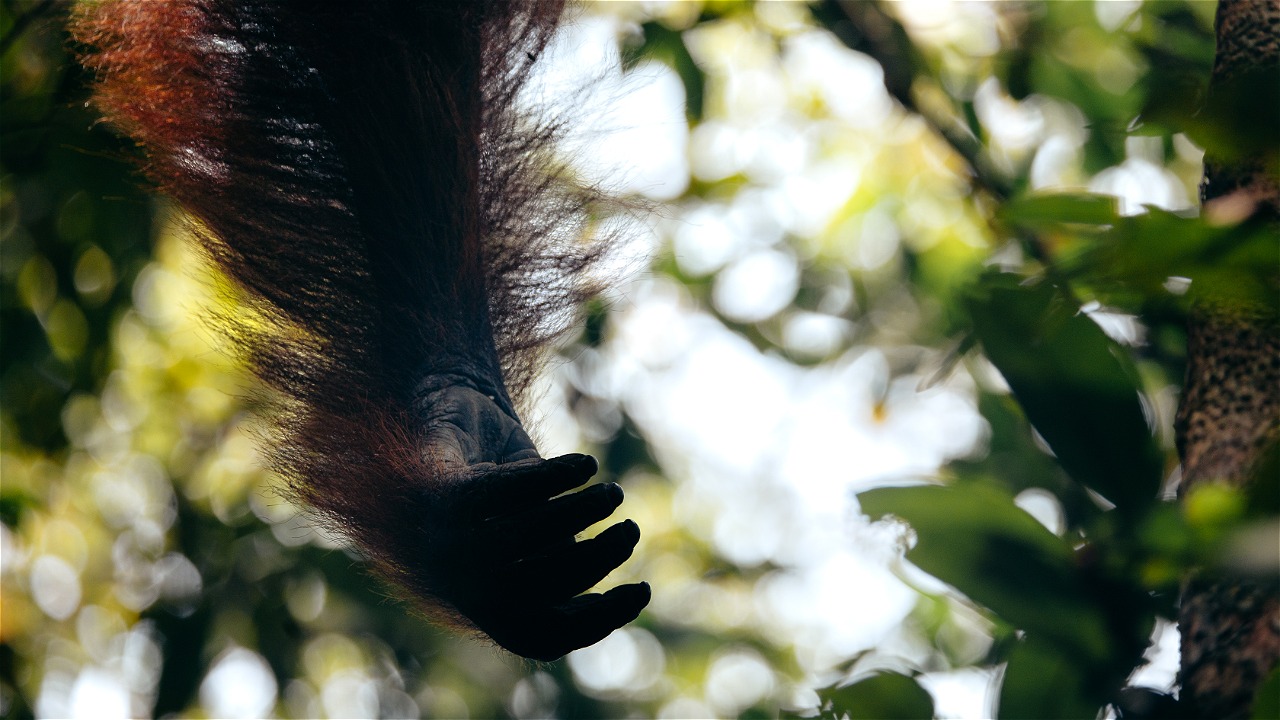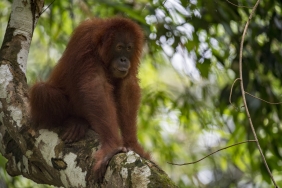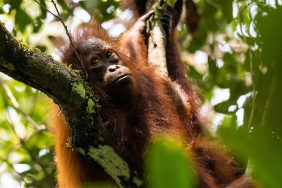GIVING ORANGUTANS "FREEDOM" FROM UNSUSTAINABLE OIL PALM PLANTATIONS
by Diah R. Sulistiowati, Forest and Species Campaign Coordinator
One of the creatures that is not yet "free" to live in the wild is the orangutan. There are two types of orangutans in Indonesia, those living in Sumatra (Pongo abelii) and Kalimantan (Pongo pygmaeus). They are not yet free in the sense that their right to live in the wild has been taken away by land use change, from forests to oil palm plantations. This is evidenced by the many cases of orangutan slaughter, which can be seen in various mass media some time ago. Clearly, this conflict has occurred because of the high rate of land conversion. Based on data from the Indonesian Palm Oil Advocacy Team in 2010, 10 million hectares of land in Kalimantan, which is home to orangutans, has been converted into oil palm plantations.
The slaughter of orangutans can be categorized as an act of lawlessness. The perpetrators of this act violate Law No. 7 of 1999 concerning ""Preservation of Plant and Animal Species,"" and Law No. 5 of 1990 concerning ""Conservation of Biological Resources and their Ecosystems"" with a penalty of 5 years imprisonment and a fine of IDR lOO million.
Not only land change, but hunting is also one of the threats. As an illustration, according to some experts and activists, about 1,000 orangutans were poached from forests in Kalimantan in 2002, while 9,000 orangutans were traded in just four months in 2001 (Jatna Supriatna, in Sinar Harapan). Other facts show that every year around 1,000 Bornean orangutans are slaughtered for their babies and traded within Indonesia or smuggled abroad. In fact, to catch a baby orangutan, poachers will kill the mother first to get the baby.
Population of Orangutans in the Wild
Orangutans, both Sumatran and Bornean species, are in a highly threatened conservation status. Based on the status given by the International Union for Conservation of Animals (IUCN), the Bornean Orangutan is categorized as endangered, while the Sumatran Orangutan is even more threatened as it is categorized as critically endangered. Both species are also listed on Appendix l of CITES (Convention on International Trade in Endangered Species of Wild Fauna and Flora). This means that orangutans - including their body parts - cannot be traded anywhere in the world.
In 1993, it was estimated that the number of orangutans in Indonesia and Malaysia had fallen by 30-50 percent in the last ten years, while their habitat had shrunk by 80 percent in the last 20 years. According to orangutan experts, there are currently only an estimated 60,000 individuals left in Indonesia, spread across Borneo and Sumatra. For Sumatran orangutans, the population is estimated to be around 7,000-11,000 individuals.
Help Us, Give Freedom to Orangutans
Indonesia is the largest producer of palm oil and its derivatives. In 2008 alone, profits from the sale of 17.4 million tons of palm oil reached US$6.8 million. The palm oil plantation sector also successfully contributed US$8 billion to Indonesia's total export value and employed 3 million people in 2007.
Don't worry, you can still help liberate orangutans even if you use palm oil-based products. You can do this by buying palm oil products with the RSPO logo, or palm oil that has been certified "halal" from the slaughter of orangutans. RSPO-certified palm oil regulates everything, including if there is an orangutan population in the industrial plantation, it must first conduct research on orangutan "pockets" and establish HCV (High Conservation Value Forest), or forests with high conservation value. HCV will prevent forests from being converted into plantations. Since August 19 was proclaimed as World Orangutan Day, let us give orangutans a free and independent life in the wild.





